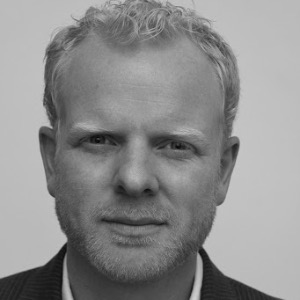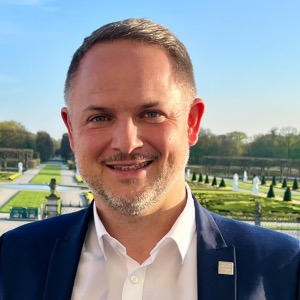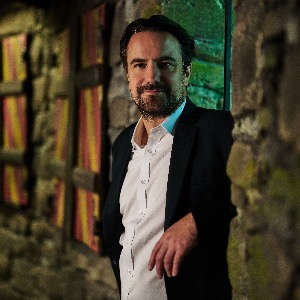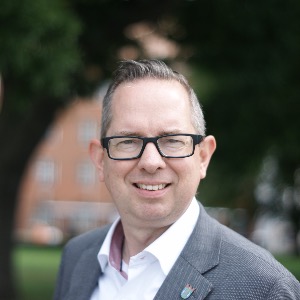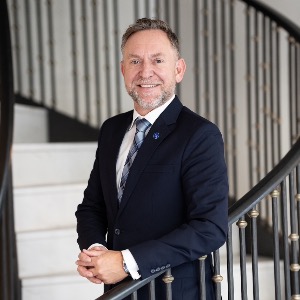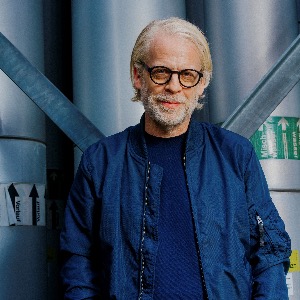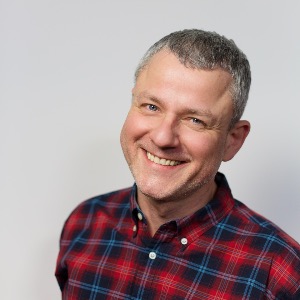
Clemens Glade has spent years moving between worlds, both geographical and cultural, as well as those of communication. From advising destinations and shaping organizational narratives to bringing people together in embassies, he works in the spaces where cultures meet and identities are negotiated. Today, as a communication consultant and organizational developer, he channels this experience into helping organizations rediscover themselves, creating dialogue, resilience, and clarity where it’s needed most.
Mapping Change, Sparking Dialogue: Clemens Glaede on Landscapes, Diplomacy, and the Power of Informal Encounters
In your consulting and workshops, you often describe organizations as living landscapes with mountains of values, rivers of communication, and zones of fog. How does this cartographic perspective help teams rediscover themselves and navigate change?
We think in images; they’re how we make sense of the world. Storytelling builds on that ability. The moment we began to tell one another stories to translate the vast into something our minds could hold, the success story of humanity began. Everything we call culture is, at its core, visual and symbolic.
When I describe organizations as landscapes, I invite people to see themselves within their own terrain. Values become mountains that give orientation; communication turns into rivers that connect; and uncertainty becomes a fog that can be crossed rather than feared.
In times of transformation, when change feels unsettling, these inner maps provide scale and perspective. Challenges seem less intimidating when we relate them to something familiar. A mountain may look daunting from below, yet as with any climb, what begins as impossible soon becomes a test of endurance and ends in a moment of clarity and quiet triumph.
Such imagery helps teams shift from fear to curiosity, from resistance to participation. Because once you know your landscape, even the steepest ascent becomes part of a meaningful journey.
Embassy visits and international encounters are a recurring part of your journey. What is it about stepping into a diplomatic space that sparks transformation both for organizations and for the individuals within them?
What sets the extraordinary apart from the everyday is our attitude toward it. These are the rare moments when we become fully present, focused, mindful, and receptive. Like entering a sacred space or an opera house, the very act of attuning ourselves changes something within us: we cross a threshold and open up to what is about to unfold.
Every encounter holds the potential to transform us if we allow ourselves to be truly present. Every interaction with another person can become an intervention when met with openness, awareness, and resonance. I believe in the transformative power of genuine conversations and meaningful encounters in those moments when something begins to move without being forced. In the words of Martin Buber: A person becomes an “I” through a “Thou.”
The same applies to organizations. They, too, are living systems made up of relationships and dialogues. When awareness and authenticity enter these spaces, when people truly listen and respond to one another, the entire organization begins to shift. Culture changes not through mandates or strategies alone, but through the quality of presence in everyday interactions. Transformation starts in conversation.
Your volunteer work with the German Journalists’ Association creates deliberately informal spaces where journalists and diplomats meet. What have you learned from these encounters about the power of dialogue, and why is informality sometimes more productive than formal settings?
Through nearly fifteen years of organizing embassy visits with the German Journalists’ Association, I have seen how much power lies in dialogue when the setting is deliberately informal. In such spaces, curiosity and openness prevail: embassies can present their perspectives freely, and journalists gain authentic insights without the constraints of protocol.
What I have learned is that informality often lowers barriers and builds trust more quickly than formal settings. Conversations flow, connections emerge, and sometimes the most valuable outcomes, whether mutual understanding or the seed of a future interview, arise precisely because the atmosphere is off the record.
To know more, visit clemensgla.de

